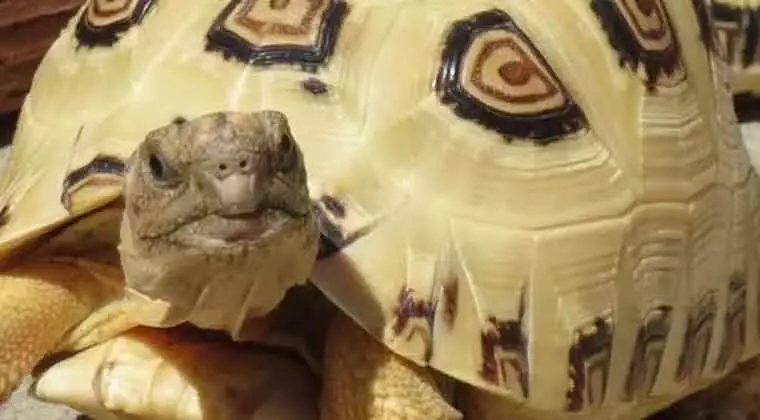Yes, turtles can eat raspberries. However, it is important to note that this fruit should not be a staple in their diet and should only be given as an occasional treat. When feeding raspberries to your turtle, make sure they are fresh and free of any pesticides or chemicals.
Additionally, you want to cut them into small pieces so they are easier for the turtle to swallow and digest. Raspberries provide some essential vitamins such as Vitamin C and A which can benefit the health of your pet turtle. However, too much sugar from the berries can cause digestive problems so it’s best to limit consumption whenever possible.
What Can Box Turtles Eat?
Box turtles are omnivorous, meaning they can eat both meat and plant-based foods. Some of the most popular food items for box turtles include dark leafy greens such as kale and collard greens, fruits like apples or strawberries, protein sources like mealworms or crickets, and other items including mushrooms, snails, or earthworms.
Additionally, commercial turtle diets (pellets) may be offered as a supplemental item. It is important to note that calcium should be provided in some form with every meal to ensure proper shell growth and health.
Can Red-Eared Slider Eat Raspberries?
When it comes to what red-eared sliders can eat, the answer may surprise you. Red-eared sliders are omnivorous, meaning they’ll eat just about anything! This includes both animal and plant-based food items like insects, worms, fish, and even fruits and vegetables such as raspberries.
However, while these turtles will happily munch on a raspberry or two now and then, they should not make up the bulk of their diet. Raspberries are high in sugar which can cause digestive issues for your turtle if consumed too often.
As with all new foods that you introduce into your turtle’s diet it is important to offer them in moderation; a few raspberries here or there will be fine but avoid overfeeding them this treat as part of their main meal plan.
What Berries Can Turtles Eat?
Turtles are omnivores, meaning they enjoy a varied diet of both plants and animals. They can eat many types of berries, including blueberries, strawberries, blackberries, cranberries, and raspberries. Berries are not only a tasty treat for your turtle but also provide them with some essential vitamins and minerals that their bodies need to stay healthy.
Not all turtles will eat berries right away though; you may have to introduce the new food slowly over time until they get used to it. Additionally, make sure you always wash any fruit before feeding it to your turtle as there could be pesticides or other chemicals on the outside of the fruit that could harm your pet.
When preparing fruits for turtles make sure to cut them into small pieces (depending on their size) so they can easily digest them without having difficulty swallowing large chunks which could cause choking hazards or digestive problems.
In addition to providing variety in their diet offering different types of fruits like berries occasionally is a great way for your turtle to get more nutrition from its food than just eating pellets alone!
Can I Give My Turtle a Raspberry?
No, you should not give your turtle a raspberry. Turtles lack the enzymes necessary to digest raspberries, and they can cause digestive upset or even more serious health issues if ingested. Not only that, but turtles are carnivorous reptiles who need a diet comprised of animal proteins to stay healthy fruit like raspberries don’t offer any nutritional value for them at all.
If you want to treat your turtle every once in a while, try offering it some cooked shrimp or frozen bloodworms instead (make sure the food is thawed first!). This will provide much-needed protein and other nutrients without putting your pet’s health at risk.
What Fruits Are Safe for Turtles?
When it comes to what fruits are safe for turtles, the list is surprisingly short. Turtles should eat mostly leafy greens such as lettuce and kale, but they can also enjoy a few special treats from time to time. Fruits that are considered safe for turtles include apple slices, strawberries, blueberries, raspberries, and banana slices (without peels).
It’s important to avoid feeding your turtle too much fruit because the high sugar content can lead to health problems over time. When feeding your turtle fruit it’s best to stick with fresh or frozen varieties as canned fruits may contain added preservatives which could be harmful. As always it’s best to check with an expert if you have any doubts about what type of food is safest for your pet turtle.
Can Turtles Eat Blackberries?
Turtles can eat blackberries as part of a balanced diet. Blackberries are an excellent source of vitamins and minerals, including vitamin C, manganese, and fiber. As with any food item, it is important to feed your turtle blackberries in moderation.
Too much fruit can lead to digestive issues or even cause nutritional deficiencies. Always be sure to remove the seeds from the berries before feeding them to your turtle!
Can Turtles Eat Blueberries?
Yes, turtles can eat blueberries! Blueberries are a great source of Vitamin C and antioxidants for your turtle. Blueberries should be given in moderation since they contain sugar and calcium which could lead to health issues if eaten in excess.
Turtles may also enjoy other types of berries such as strawberries, blackberries, raspberries, and cranberries. Be sure to feed your turtle only organic fruit that has not been treated with pesticides or chemicals.
Baby Turtle Eating a Raspberry
Conclusion
Turtles can safely eat raspberries as a part of their diet. Raspberries are packed full of vitamins and minerals that provide essential nutrition for turtles.
They should be offered in moderation, however, as they contain high levels of sugar which is not beneficial to the turtle’s health. Raspberries make an excellent treat or snack for pet turtles if given in small amounts and occasionally.
